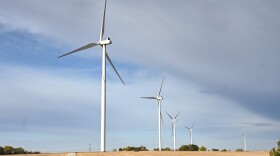
Eva Tesfaye
Eva Tesfaye is a 2020 Kroc Fellow. She started in October 2020 and will spend the year rotating through different parts of NPR.
She joined NPR after graduating from Columbia University with a B.A. in English and a minor in French and Francophone studies, where her studies focused on African literature and the history of French colonization. She also spent a year in Paris taking literature courses at the Sorbonne. During her time at Columbia, she reported for her campus radio station, WKCR.
She grew up moving around Africa and has lived in Uganda, Rwanda, Sudan, South Africa, and Kenya.
-
Community composting is growing across the country but problems arise as cities lag behind in regulations and zoning laws.
-
Millets, an alternative crop to corn and soybeans, is getting new attention in the U.S. The resilient grain could help U.S. farmers survive climate change.
-
A new report from the Environmental Working Group found targeting the U.S. Department of Agriculture's conservation funding to the Mississippi River region would have huge benefits to water quality and the climate.
-
The Inflation Reduction Act provides funds for clean energy, transportation, electrification and more for rural communities, but small towns with few resources and staff may have trouble accessing those programs.
-
Legislation is being proposed at the federal and state level to restrict foreign ownership of farmland, especially by China. The scrutiny comes after a Midwestern project was scuttled by military concerns and the flight of a Chinese spy balloon across the U.S.
-
Tar spot, a fungal disease, first appeared in the U.S. in 2015 with reports in Indiana and Illinois. Since then, it has been spreading across the Midwest.
-
The U.S. Food and Drug Administration announced last month that it will not apply dietary supplement regulations to the hemp product CBD. The announcement has been frustrating for hemp farmers who have been waiting years for regulation.
-
Legislation and programs in states like Missouri and Nebraska are paving the way to welcome large livestock operations by limiting local control over the facilities. Some rural residents worry about the potential pollution and decreased quality of life that will bring.
-
Blue-green algae appears in lakes all over the Midwest during the summers and can make both people and animals ill. Few states have routine testing programs to check for the toxic algae, but some local and volunteer groups are stepping in to fill that gap.
-
With the end of the pandemic possibly approaching, young Americans are getting ready to make up for lost time and lost partying, much like their great-grandparents did a century ago.









